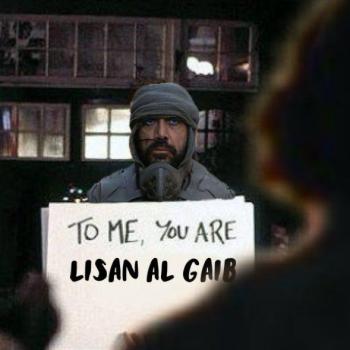I thought I’d share a recording of the lunchtime discussion I led on the topic of “Robotic Religion” as part of the Religion program at Butler University’s lunchtime discussion series Religion Matters. It focuses on the current situation we find ourselves in, and thus on robots between their use in factories (so familiar we rarely think about it) and as depicted in science fiction (which connects with all sorts of interesting questions, but so much so that we can focus all our attention there to the neglect of present and near-future concerns). Robots are everywhere today. Robots like C3PO and R2-D2 aren’t. Where are we now? What is automated? How much attention is being paid to the present and near future, as opposed to more distant future? And how does it relate to religion?
I tried to get things started with a question followed by another question. First, what did people turn to clergy for historically? Advice (jobs, marriage, raising children), counselling, wisdom. Biblical interpretation. Comfort.
I then asked what people turn to Google for. Isn’t it mostly the same things?
I also asked what Google is, and what Google gives us as results. The combination means we are really talking about websites made by humans (mostly) curated by algorithms.
Should we trust Google? I was surprised that those present, especially the younger among them, had not heard Google referred to as “all knowing.” We can also ask whether it is benevolent or wise.
There’s a lot more. Give it a watch or listen and let me know what further thoughts you have on this topic!
See also Steve Wiggins on an old movie you may have missed, and several other related posts from around the blogs:
https://scienceandbelief.org/2019/12/19/guest-post-can-humans-be-special-in-an-age-of-ai/
Podcast Episode 3: William Jaworski on Hylomorphism and the Big Questions
http://learningaloud.com/blog/2019/12/29/decade-of-web-2-0-decline/
Artificial intelligence identifies previously unknown features associated with cancer recurrence
NASA Langley Research Center Chief Scientist on AI, Mars Colonization & Spaceflight
Best Screenplay Goes to the Algorithms: Learning to appreciate the future of literature
Digitizing Medieval Manuscripts
3-D Printing Is Helping Museums In Repatriation And Decolonization Efforts













